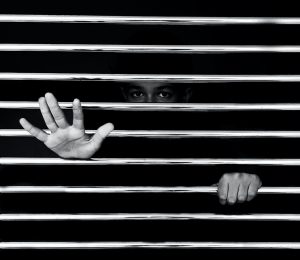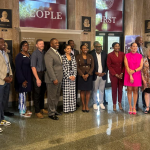
By Tashi McQueen,
AFRO Political Writer,
tmcqueen@afro.com
According to the Prison Policy Initiative, Black Americans bear the brunt of the burden for mass incarceration. Americans see more arrests per capita than any other country and too many are incarcerated because they simply can’t make bail while awaiting trial.
Maryland is one of 12 states where more than half the prison population is Black. Baltimore City is one of the significant contributors to this statistic.
“Black people in Baltimore City, families and entire communities have been devastated by over-policing, discriminatory policing, a discriminatory criminal justice system and biased prosecution,” said Sen. Jill P. Carter (D-Md.-41).
Mass incarceration impacts so many aspects of society but especially wealth.
“Mass incarceration has such a detrimental impact on the collective wealth of the Black community because it detracts from our community’s earning power, removes individuals from playing a role in our community and creates additional expenses for families while exacerbating trauma,” said Sen. Cory McCray (D-Md.-45). “So many individuals who could be contributing to our community are instead serving time in prison, unfortunately.”

Carter highlighted the harsh reality for many formerly imprisoned people, a stained record.
“When you’re talking about wealth, once people are stained with criminality and are released from incarceration, their options are severely decreased even if they just have a misdemeanor conviction,” said Carter. “Too few resources are devoted to helping that person not only rehabilitate themselves but create a pathway to economic success.”
Formerly incarcerated persons are nearly ten times more likely to be homeless than ordinary citizens due to employment inaccessibility and housing discrimination. Discrimination can be due to their record, time since release, gender, age and race.
“We don’t provide enough pathways for people to have a place in legitimate society, where they can work, have a business and pay taxes,” said Carter. “People have to do illegal activities to make a living, to put food in their family’s mouths. It’s the responsibility of the legislature and political leadership to change that, to create options for them outside of criminality.”
Despite this, some can turn their lives around and Gwen Levi is one of them.

“I knew God had a better purpose for me. I promised the Lord I would work for the people who supported me if I got out and that’s what I’ve been doing since,” said Gwen Levi, a formerly imprisoned advocate for social and criminal justice. “I was able to regain my wealth after incarceration, but when I say wealth, I mean transformation, being able to rally my community, making sure there are necessary programs for people who come home and knowing the power of the vote.”
McCray highlighted several factors Baltimoreans could use to strengthen their Black wealth.
“Education is an important aspect of our community. The sooner we train our young people to excel at math, reading and other core subject areas, the more opportunities they will have to change the trajectory of our community,” said McCray. “One of the oldest paths to securing generational wealth has been acquiring real estate. We must prioritize ownership of real property so we can build the community we envision for generations to come.”
Carter and Levi shared similar ideas for solutions.
“It’s on the community and the legislators to reverse the impacts of mass incarceration on the Black community,” said Levi.
“The community has to hold legislators accountable,” said Carter.
Tashi McQueen is a Report For America Corps Member.
The post Mass incarceration significantly impacting collective Black wealth of African Americans appeared first on AFRO American Newspapers .












